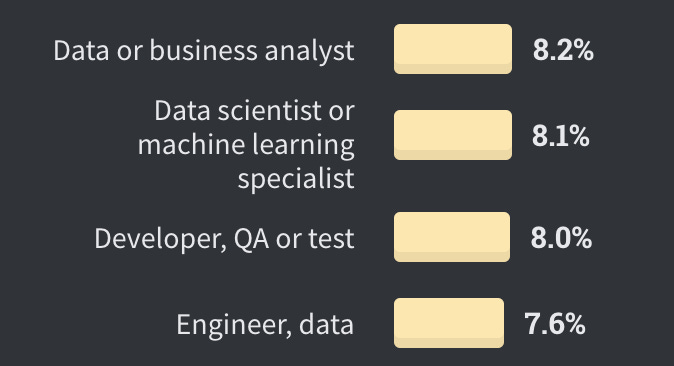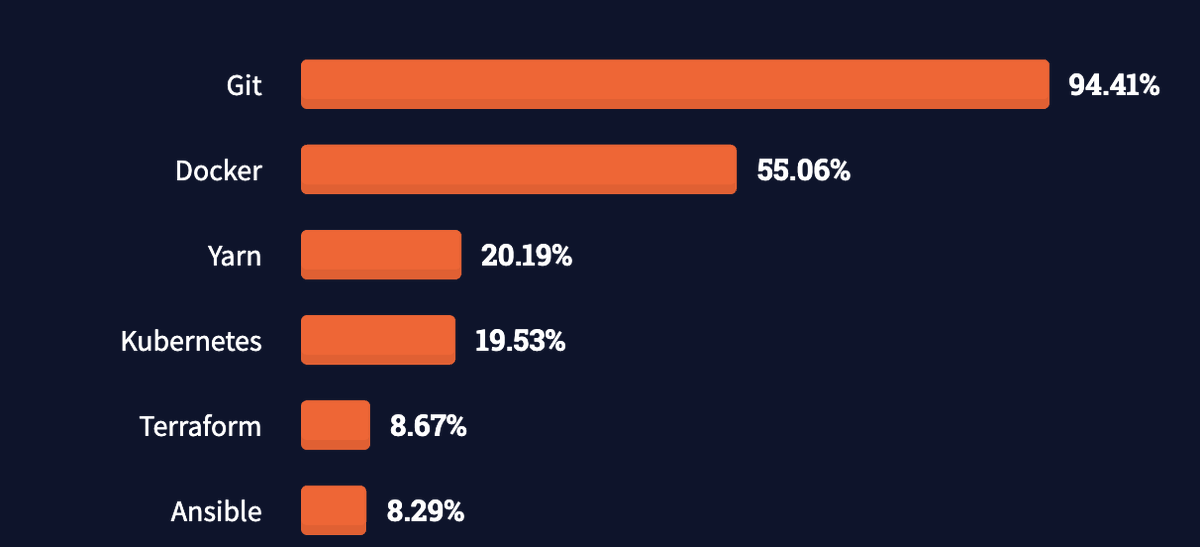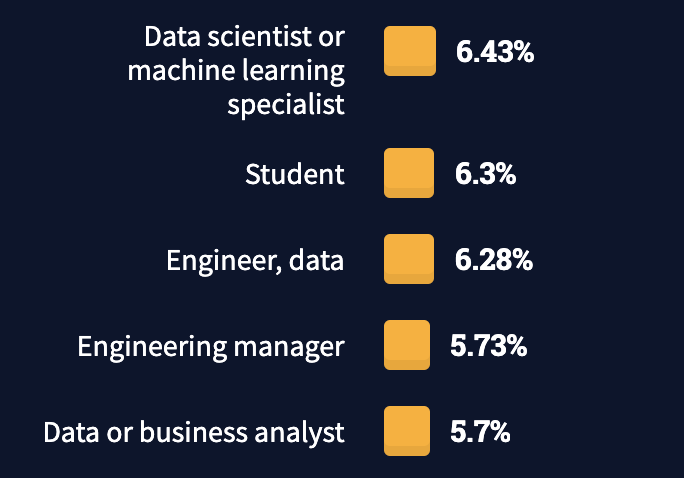Unexpected Developer Trends
Every year, Stack Overflow, a question and answer site for developers, runs a survey. It is probably the largest scale data analysis of software engineers.
This year showed some trends that were surprising.
Almost 20% of professional developers use Kubernetes. DevOps tooling continues to dominate the most used tools list, claiming 5 of the top 6 tools. The only one that isn't, yarn, is a package manager. (You could stretch and call it a DevOps tool.)
What's more interesting is the gap between Docker users and Kubernetes users, 36% of Docker users don't use Kubernetes (if you use Kubernetes, you use Docker*, but the reverse isn't always true).
Closing this gap, which is inevitable, has interesting implications down the line. First, developer tooling has to get better (that's why I created minikube and skaffold). Second, runtime platforms will standardize and make building the next layer of infrastructure possible. This has always been the goal.
Docker is the fastest-growing tool among developers. In 2020, 35% of respondents said they used Docker. In 2021, 48.85% said they used Docker. If you look at estimates for the total number of developers, they range from 10 to 25 million. That's 1.4 to 3 million new users this year.
We can back out an estimate for the total number of developers. Last July, Docker announced that they had 2 million DAUs on Docker for Desktop. So let's assume 3 million total today (counting alternatives like minikube and sector growth).
Developers might not need Docker every month, so let's conservatively extrapolate quarterly active users from MAU at 60%. That puts us at 5m quarterly active developers using Docker.
Stack Overflow surveyed 75,000 developers (50,000 professional), of which 48% (55% professional) of them use Docker.
That puts us at 10m developers (9m professional).
What does that mean? Not that much. Errors could make this napkin math wrong: the survey could be unrepresentative of the underlying developer population (Docker users are more likely to respond).
Or, respondents could claim they use Docker when they actually don't.
Or, QAU/MAU ratio could be significantly higher, because it is a tool with a steep learning curve.
Only around 15% of developers consider themselves data scientists, data engineers, or data analysts. Why is it interesting? In 2021, we saw the proliferation of separate data software stacks — one for data scientists and another for machine learning engineers. One that looks quite different than the usual software engineering stack.

The disappearance of the full-stack developer. In 2020, 58% of developers considered themselves full-stack engineers. However, in 2021, only 49% of developers considered themselves full-stack.
Do you think the full-stack developer exists anymore?
— Matt Rickard (@mattrickard) June 5, 2021


